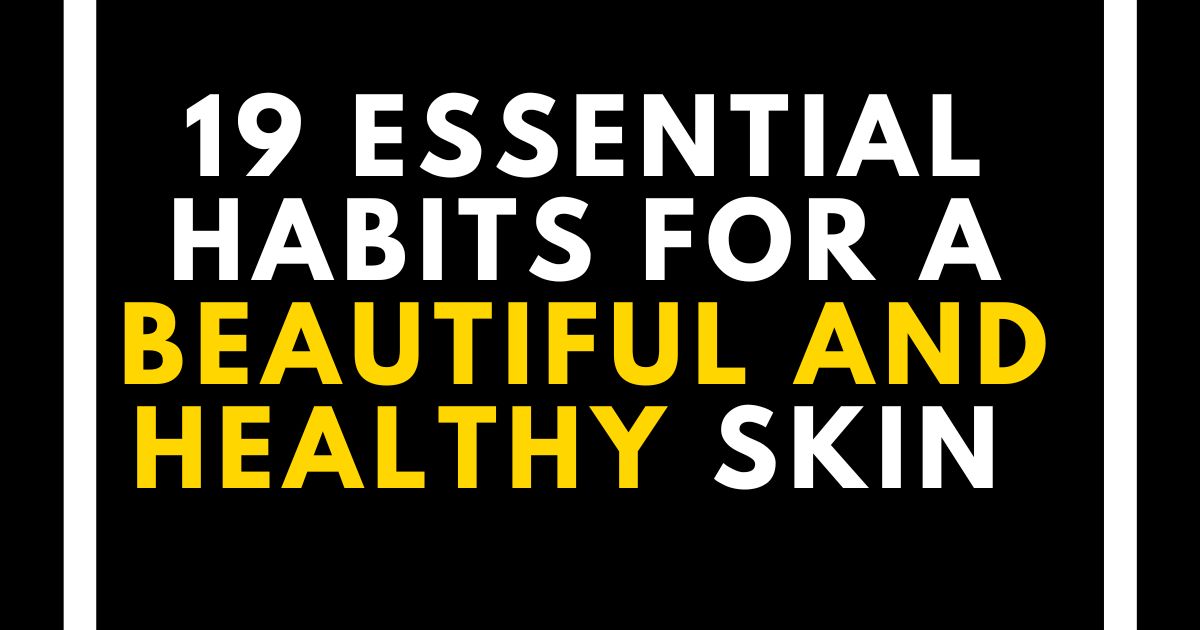One of the biggest things we have control over in our lives is how we think. It’s been proven time and time again that your inner thoughts can directly impact your happiness levels, energy levels, and physical well-being. As someone who has experienced a significant amount of “negative”, and “pessimistic” thinking patterns throughout my life, I now understand how important it is to stay cheerful.
Every human being has the potential to learn how to be happy. It’s all about your perception. If you feel down about the life you have, take a closer look. Many things make you happier. By focusing on these things, and looking at your life from a more positive perspective, you can develop a sense of happiness that will come from within.
There are lots of ways to become happier.
Manage stress
1. Be kind to yourself
If you’re stressed out, it can be easy to get on your own case and beat yourself up over mistakes or perceived shortcomings.
That can make things worse, so try being kinder toward yourself instead. When you notice negative thinking, take a moment to tell yourself it’s okay, and move on.
2. Try deep breathing
When stress kicks in, our bodies often react with shallow breaths, which only make us feel more anxious. To counteract this reaction, try deep breathing for a few minutes every day.
Close your eyes and inhale through your nose for four seconds; then exhale slowly through pursed lips for eight seconds (or longer). Do this three times in a row until you feel calmer.
3. Embrace nature
Spending time outside has been shown to reduce stress and boost moods, so get out there. Even if it’s just a short walk around the block or sitting under a tree for five minutes at lunchtime, getting out into nature will help clear your mind and rejuvenate your body.
4. Practice mindfulness
Mindfulness is simply the practice of focusing your attention on whatever you’re doing in the present moment. It can be as simple as taking a few deep breaths and paying attention to your breath as it goes in and out of your body.
The idea is that when you’re mindful, you’re more aware of what’s happening around you, including how you’re feeling, so that you can respond accordingly.
5. Walking meditation
Walking meditation is a great way to practice mindfulness when you don’t have time for a formal seated meditation session.
It’s also good for people who aren’t comfortable sitting still for long periods of time or who have trouble concentrating on their breath during meditation.
You can walk anywhere, around the block, through the park, or even down the stairs at work.
6. Find a Therapist
If you’ve tried all these things and still feel overwhelmed by stress, therapy might be right for you. Therapy can help improve your mental health and teach tools that will help you manage stress better in the future.
Care for your mind and body
1. Gratitude Practice
You don’t have to be Buddhist or even religious to appreciate the benefits of gratitude. Studies have shown that gratitude has health benefits, including lower blood pressure and improved sleep quality.
Gratitude also increases optimism and makes you more likely to help others. Even if it feels forced at first, try saying thank you when someone holds a door open for you or gives you directions.
You’ll see how good it feels to show appreciation for the little things in life.
2. Create a morning routine
Morning routines aren’t just for people who want to become rich and famous, they’re also great ways to boost happiness levels throughout the day.
If you start each morning with an activity that gets your brain firing on all cylinders (like meditation), you’ll find yourself feeling more productive and focused throughout the day as well as less stressed out by office politics or traffic jams on the way home from work.
Morning routines also give us something positive to look forward to every day, something we can’t say about our jobs or other obligations.
3. Make a joy list
Make a list of things that bring you joy and write about them.
It can be anything: the smell of freshly cut grass, a cup of hot chocolate, cuddling with your pet, listening to your favorite music, or reading a book by a fire.
Start with small items and add more as you think of them.
4. Exercise more often
Exercise boosts endorphins, which can make you feel happier. A brisk 30-minute walk can make all the difference in how you feel throughout the day.
You don’t have to do it all at once, break it up into smaller chunks if that works better for you.
You should also try to avoid eating too close to bedtime because food takes longer than usual to digest while sleeping, which means those calories may be laying around in your system longer than they should be.
5. Stay hydrated
Drink plenty of water throughout the day, it’ll keep your skin looking young and healthy, too.
The best way to know if you’re drinking enough is by checking for signs of dehydration: dry mouth, dizziness, fatigue, and constipation (feeling bloated).
Focus on personal growth
1. Work toward a goal
Setting goals can help you find meaning in your life and make it more enjoyable. When you set goals, you have a sense of purpose and direction. You know where to go and what to do when you get there.
2. Challenge yourself
Challenges make us feel good because they give us a sense of accomplishment when we overcome them. Challenges can be as simple as trying something new or difficult or as complex as running a marathon, both are rewarding experiences in their way.
The important thing is that they push our limits just enough so that we can feel like we accomplished something after completing them.
3. Have a plan
The best way to stay on track is to have a plan so that you know exactly what needs to be done and when it needs to be done. This gives you an idea of how much time is needed for each task and helps keep things organized so that nothing gets forgotten or left behind.
4. Check in with your values
Values drive your decisions and actions, and they can be anything from family to health to making a difference in the world.
When you’re feeling overwhelmed or anxious about life, it’s helpful to take some time to reconnect with your values.
This can help you make better choices going forward.
5. Practice decision-making
If you find yourself stuck on a big decision, whether it’s something small like what movie to see or something bigger like a career change, try asking yourself these questions: What would I have to learn or do in order for me to feel good about this decision? What would I have to give up? How much time do I need?
You might be surprised at how quickly your mind brings up answers once you start asking these questions.
Get social
1. Connect with others
You don’t have to be an extrovert to enjoy being around people, but spending time with others can make you happier.
It doesn’t have to be a big group either, just one or two close friends and family members can make a big difference in how you feel about life.
2. Embrace alone time
You don’t need to be lonely when you’re alone. In fact, solitude can be beneficial for your well-being. Embrace the time you spend by yourself and get used to it, it’s good for your mind and spirit.
3. Set healthy boundaries
Healthy boundaries help prevent burnout and stress, so it’s important to set them up in your life. This might mean saying no more often than yes, or perhaps not taking on so many commitments that they overwhelm you with obligations.
Whatever works best for you, just remember that there’s a difference between saying no because you don’t want to do something (or feel overwhelmed) versus saying no because someone else wants something from you (or because there’s nothing wrong with it).
4. Find a new hobby
If you already have one or two things that bring you joy, add a new one. You don’t need to spend a lot of money on this; just look for something that interests you, whether it’s playing sports, learning about art or taking photos.
If you don’t have any hobbies yet, try starting with one that doesn’t require much investment at first, like reading books or listening to music, so you can see if it really interests you before committing yourself to something more expensive or time-consuming.
5. Volunteer
Volunteering is an excellent way to meet people who share your interests and values while doing something meaningful for society at large.
And because volunteering usually involves helping other people, it can also reduce stress by making us feel needed and useful, a key component of being happy.




